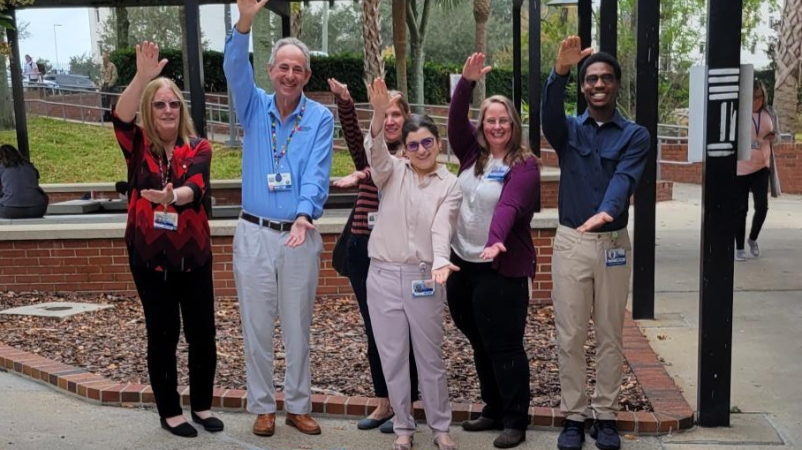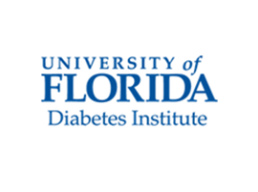
The University of Florida (UF) is one of eighteen Type 1 Diabetes TrialNet International Clinical Centers at the forefront of type 1 diabetes research. Led by Michael Haller, MD, the TrialNet team at UF is dedicated to preventing type 1 diabetes and stopping disease progression by preserving insulin production before and after diagnosis.
Our Team

Michael Haller, MD
Principal InvestigatorDr. Michael Haller has been involved in type 1 diabetes research since the early 1990s and has published over 200 manuscripts and more than 20 reviews/book chapters on type 1 diabetes pathogenesis, prevention, and interdiction. He is the principal investigator or co-investigator on numerous Breakthrough T1D, NIH, and Helmsley Trust funded studies. Dr. Haller's goal is to work every day to improve the lives of children and families affected by type 1 diabetes; to develop therapies that can meaningfully prevent and reverse the disease.

Desmond Schatz, MD

Mark Atkinson, PhD

Laura Jacobson, MD

Timothy Foster, MD

Brittany Bruggeman, MD

Jennifer Hosford, MPH

PD Towe
Danielle Poulton, LPN

Lisa Bacorn, RN
John Marks
"Our mission is to improve the lives of patients and families affected by type 1 diabetes. Until there is an effective means of preventing and reversing type 1 diabetes, we will continue to work towards making that dream a reality"-Michael Haller, MD, University of Florida
Regional Affiliates
Affiliates provide opportunities for people who do not live near a TrialNet Clinical Center. The affiliate sites listed below work with UF to offer convenient participation in our research programs
"Screening is the first step on the pathway to prevention. Those who test positive for an increased risk may be able to join other research studies testing ways to delay and prevent the disease. Without prevention, there can be no cure" Desmond Schatz, MD, University of Florida
Research Studies
If you have a relative with T1D, you may be eligible for risk screening that can detect the early stages of T1D years before symptoms appear. More
Depending on your risk screening results, you may be eligible for monitoring. We’ll monitor you for disease progression and let you know if you become eligible for a study. More
TrialNet is testing a low dose of the immunotherapy drug anti-thymocyte globulin (ATG) to see if it can delay or prevent type 1 diabetes (T1D) in people ages 6 to 34 who have a 50% risk of clinical diagnosis (Stage 3) within 2 years. Risk is defined by having two or more autoantibodies and abnormal blood sugar (Stage 2), plus at least one high-risk marker (based on test results). In an earlier TrialNet study for people newly diagnosed with T1D, low-dose ATG preserved insulin production and improved blood sugar control for 2 years. Details
TrialNet researchers are testing two different treatments – abrocitinib and ritlecitinib – to see if either or both can preserve insulin production in people (ages 12-35) newly diagnosed with type 1 diabetes (Stage 3 T1D). Abrocitinib and ritlecitinib are in a new class of autoimmune treatments called Janus kinase (JAK) inhibitors. Details
TrialNet is testing rituximab-pvvr and abatacept in people (ages 8-45) who were newly diagnosed with type 1 diabetes (T1D) to learn if using both treatments, one after the other, maintains the body’s ability to make insulin. By adding abatacept after rituximab-pvvr, researchers predict more people will experience prolonged beta cell function during and possibly after treatment. Details
TrialNet is testing the safety of a new treatment, NNC0361-0041, in adults diagnosed with type 1 diabetes (T1D) in the past 48 months. This is a Phase 1 study, which means it is the first time this treatment is being tested for safety in people. If this study results in no safety concerns, we plan to conduct a larger study to see if this same treatment can slow down or stop T1D in people at high risk, before clinical diagnosis. More
If you are diagnosed with T1D while participating in one of our prevention studies, we’re still here for you. You can continue to receive personal monitoring while helping us learn more. More





